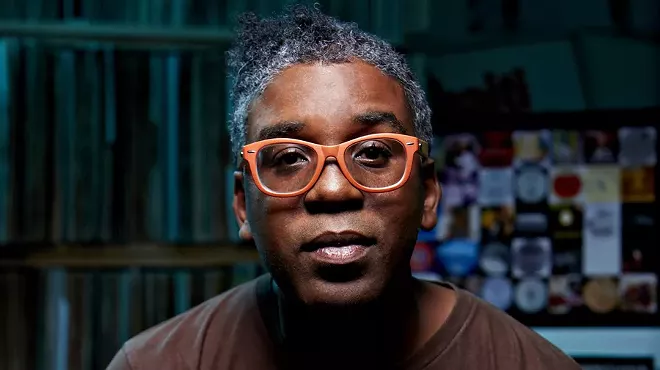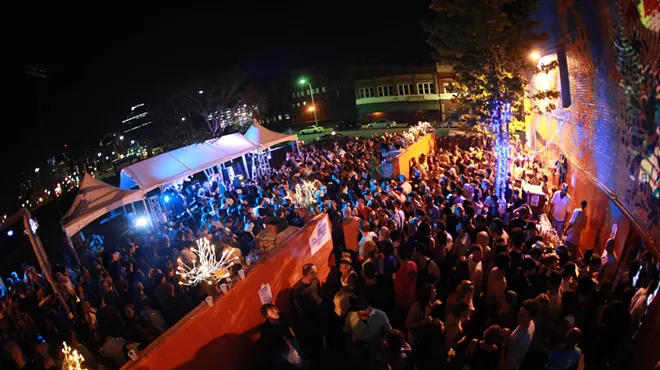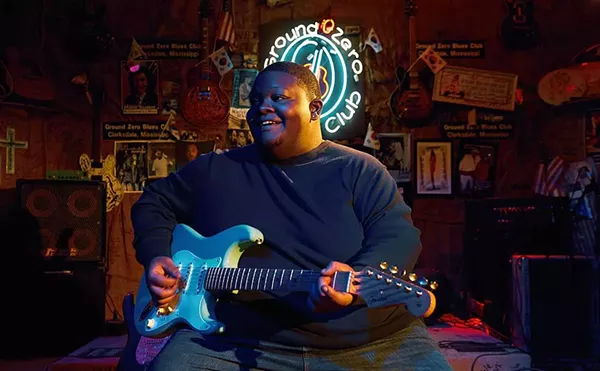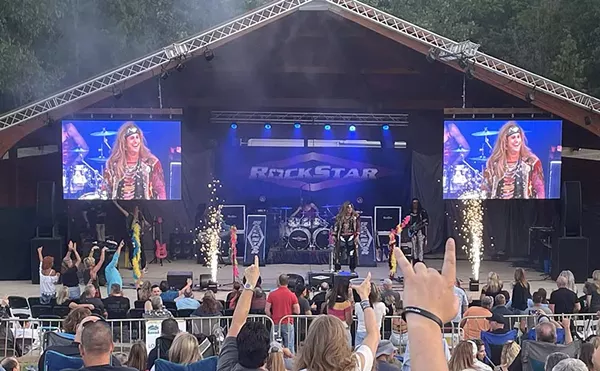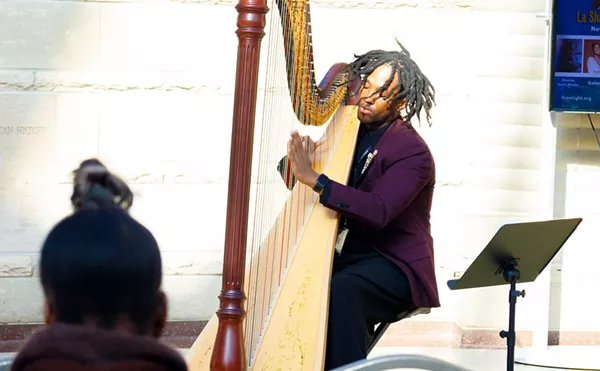Why Movement Electronic Music Festival 2017 has more live music than ever
Liver than you’ve ever been

Audio By Carbonatix
[
{
"name": "GPT - Leaderboard - Inline - Content",
"component": "35519556",
"insertPoint": "5th",
"startingPoint": "3",
"requiredCountToDisplay": "3",
"maxInsertions": 100,
"adList": [
{
"adPreset": "LeaderboardInline"
}
]
}
]
Is it live? This weekend at Hart Plaza, the answer will be yes, about one-quarter of the time.
This year, Detroit's electronic music festival is dominated, as ever, by DJs. But of the more than 110 scheduled sets at this year's festival (we won't count Movement Yoga, which opens the Made in Detroit stage both Sunday and Monday afternoon), the word "live" is on 22 — 23, if you count the performance by Rebekah (Underground stage, Monday, 6:30 p.m.-8 p.m.), who's billed as playing a "hybrid set" combining live performance and DJing. Of course, there are other live performers at the festival as well: rappers like Danny Brown (RBMA, Monday, 10 p.m.-11 p.m.) and Earl Sweatshirt (RBMA, Saturday, 11-midnight) and player-bandleaders like bassist Thundercat (RBMA, Monday, 8 p.m.-9 p.m.), who hardly need the qualifier.
But "live" takes on added heft when applied to performers who typically work a crowd by spinning records, at least nominally. As the "hybrid" tag suggests, the line separating DJing from live performance in electronic music has grown so slim over time that even a recent fan might well wonder why anyone attempts to mark it at all. Obviously, plenty of DJs still hew to vinyl — some outspokenly so, such as Derrick May (shocking, right?) — and Movement's deeply rooted musical ethos tips heavily in their favor. Even so, it's not unfair to guess that many of this weekend's performers will be working off of laptops, which alone makes clear markers dicey.
Movement has never been short of live performances, of course. But it's notable that last year's schedule featured only 16, three-quarters of the number this year. There are as many reasons for playing live rather than DJing as there are people doing it. But as with the sharp rise in 2015 (generally, not at Movement) of back-to-back DJ sets, numbers tell.
Of course, many of Movement's big draws have been playing live for years, even decades, particularly those from Detroit: Richie Hawtin (Main Stage, Saturday, 10:45 p.m.-midnight), Octave One (Star Gate, Saturday, 6:30 p.m.-7:30 p.m.), Robert Hood (Pyramid Stage, Saturday, 11 p.m.-midnight), Audion (aka Matthew Dear; Star Gate, Sunday, 6 p.m.-7 p.m.), Kevin Saunderson as E-Dancer (Star Gate, Sunday, 10 p.m.-11 p.m.), and Carl Craig Presents Versus Synthesizer Ensemble (Movement Main Stage, Monday, 8:55 p.m.-9:55 p.m.) all regularly toggle between DJing and playing live with hard- and software alike, as well as instruments. Both Amp Fiddler (featured with Soul Clap; Movement Main Stage, Monday, 6:35 p.m.-7:35 p.m.) and the crucial Chicago house architect Larry Heard aka Mr. Fingers (RBMA, Saturday, 6:45 p.m.-8:15 p.m.) are renowned as players as much as producers.
Many of these acts are equally ambitious as DJs and live performers, but in very different ways. Hawtin in particular has done much to make stage-set gizmos and retina-peeling light shows de rigueur in dance music, aiming for a fully controlled Sensurround stage environment years before Daft Punk unveiled their pyramid at Coachella. That's another difference: It's just plain easier to control stage and lighting cues with a live performance than with a DJ set, unless you pre-program your records. That's anathema to the kind of DJs Movement books, who place a premium on responding to the moment.
But playing live also implies additional energy on the performers' part. One of this year's most promising bookings is Factory Floor (RBMA, Saturday, 9:45 p.m.-10:45 p.m.), initially a trio and now a duo of Gabriel Gurnsey and vocalist Nik Void. Their last album, 25 25, which DFA released last year, was polarizing — I found its minimalism invigorating, while a critic for Resident Advisor thought it "[lost] sight of the difference between absence and substance." But the album's serrated edges are rooted in post-punk as much as techno, thus tailor-made for a live setting. Even those of us who love dancing to records sometimes crave that just a little bit more.
For a full schedule and ticket prices go to movement.us.

